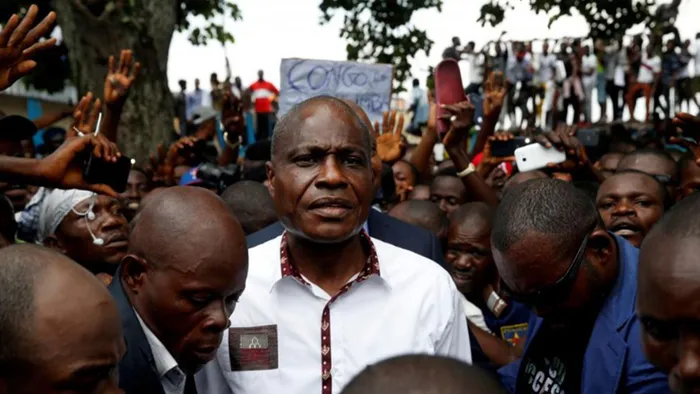Why coalitions have worked for some countries

Picture: Reuters – In this file picture, Martin Fayulu, runner-up in Democratic Republic of Congo’s presidential election arrives at a political rally in Kinshasa in 2019. The DRC ruling coalition won legislative majority, constraining the president-elect.
Picture: AFP – Kenyan President William Ruto. Ruto and Uhuru Kenyatta were in a coalition, the writer says.
The African Editor Noni Mokati chats to independent election analyst Terry Tselane on the state of coalitions in South Africa and in Africa and why coalitions are healthy for democracy.
Give us examples where coalition have worked?
It is happening in Kenya, they deposited their arrangement with the registrar of political parties. It’s not easy for them to get out of a relationship. The incumbent William Ruto and former president Uhuru Kenyatta were in a coalition.
Germany has also been under coalition since 1923. Even now. They took six months to form almost 30 subcommittees. One on economy, on new energy so that agreement is based on a detailed implementation of plan of each and every aspect. You don't see tensions in Germany.
Western-Europe has also been under coalition. All those Nordic countries have always been under coalition. But you don't see the instability that you see in South Africa. If the South African government and political parties here are interested, they can also spend time in Germany, especially during negotiations for coalitions and understand clearly what goes into it because here people just get in a room and agree. The devil is in the details.

What is the state of coalitions in South Africa?
There has always been an anomaly in the proportional representation system that you had one dominant political party.
The proportional representation system presupposes that political parties will get a certain percentage. Based on that percentage, they will then form a government. Here in South Africa, you had a situation where one party (the African National Congress) has been dominant all along in a proportional representation system.
But things are beginning to normalise. When things normalise, parties begin not having as much support as they used to have. We are becoming a normal country with a proportional representation system. In a country that uses the system or what it regards as “winner takes all”, it is possible for one party to dominate but not where there is power sharing (proportional representation system is about power sharing based on the seats or support you get).

We are seeing it with local government elections. But it is a trend that has been going on for a long time. By the time we went to 2021 local government elections, we had already about 31 municipalities that were already under a coalition arrangement. Those numbers have increased following the recent elections. So it means this trend will continue. But also when you look at the performance of the dominant party, which is the ANC.
In Gauteng for instance, the ANC has been losing support by almost 10 percent on average. Every election the party sheds votes. When you take the local government election results and you make them provisional, you will find that the ANC is now at 37 percent. That is a clear illustration of what is going on. There is nothing that the ANC can do to change that trajectory.
What can we expect from the South African elections in 2024?
In the coming elections, there is no way that the ANC will be in power in Gauteng. We have seen it happening in municipalities, particularly the metros. It is something that is going to continue. KZN is going down, as well as the North West. It is possible that in the 2024 elections, we will have three provinces minimum under coalition.
Here is the difficulty about the South African context with coalitions. There is no regulation of coalitions and therefore it is almost what I like to refer to as a “vat and sit” (non-binding) coalition. When in reality what we need is a formal marriage with a certificate instead of a “vat and sit” – where when a partner is fed up, they can just say ‘bye-bye’. This is what is happening now in municipalities.
Cope was part of the current multiparty government in Gauteng. It has switched sides and is supporting the opposition. Together they have taken over the Speaker's position and have removed the mayor. This creates a lot of instability. My view has always been to regulate coalitions; to have a legally enforceable arrangement where political parties enter into a relationship and sign an agreement that is registered with an independent office (registrar of parties). It must be difficult to get out of that relationship.
Tselane is also the executive chairperson of the Institute of Election Management Services in Africa and former vice-chairperson of the Electoral Commission of SA.
This article is original to the The African. To republish, see terms and conditions.